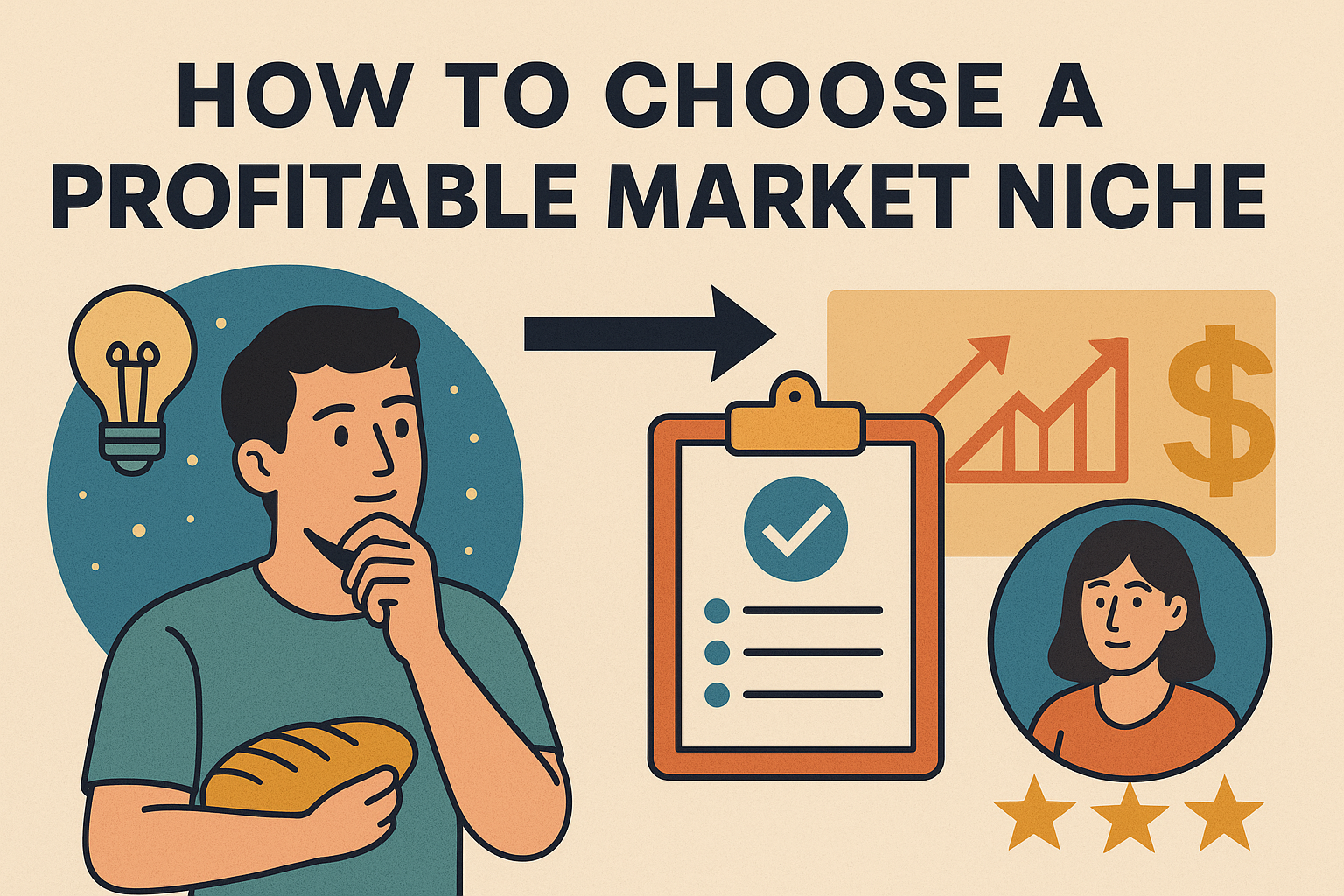Choosing the right niche is one of the most important decisions a small entrepreneur can make. A niche defines who you serve, what problems you solve, and how you position yourself in the market. While broad markets may seem attractive, focusing on a profitable niche often leads to faster growth, stronger customer loyalty, and less competition.
In this article, we’ll explore how to identify and choose a profitable market niche that sets your business up for long-term success.
Why Niches Matter
Instead of trying to sell to everyone, a niche allows you to focus on a specific group of people with specific needs.
Benefits of focusing on a niche:
- Less competition: Easier to stand out in a smaller market.
- Targeted marketing: Clear messaging that resonates with your audience.
- Customer loyalty: People trust specialists over generalists.
- Higher profits: Niche products or services often justify premium pricing.
Niches give small entrepreneurs a powerful competitive edge.
Step 1: Identify Your Interests and Skills
Start by looking at what you enjoy and what you’re good at. While passion isn’t everything, it can give you the energy to stay committed.
Questions to ask yourself:
- What topics or industries excite me?
- What problems do I know how to solve?
- Do I have skills or experience others may not have?
A niche aligned with your strengths increases your chances of success.
Step 2: Research Market Demand
Even if you love an idea, it must have enough demand to be profitable.
How to check demand:
- Use Google Trends to see search interest.
- Look at Amazon best-sellers for trending products.
- Explore online communities (Reddit, Facebook groups) for common problems.
- Check if people are actively paying for solutions in your niche.
If nobody is looking for it, it’s not a profitable niche.
Step 3: Analyze the Competition
Competition isn’t always bad—it shows there’s demand. But too much competition can make it harder to succeed.
Look for:
- Oversaturated markets (hard to stand out).
- Underserved gaps (where customers’ needs aren’t being met).
- Weak competitors (bad reviews, poor websites).
The goal is to find a niche where demand exists but competition isn’t overwhelming.
Step 4: Define Your Ideal Customer
Every niche revolves around a specific type of customer. Defining them helps you create tailored offers.
Details to define:
- Age, gender, location.
- Lifestyle, interests, values.
- Problems they face and what they want solved.
The clearer your customer profile, the easier it is to create effective products and marketing.
Step 5: Validate Profitability
A profitable niche is one where customers are willing and able to pay.
Ways to validate:
- Are people already spending money in this niche?
- Do competitors exist with steady businesses?
- Can you create unique value customers will pay for?
If your audience is interested but unwilling to spend, it’s not a profitable niche.
Step 6: Test Before Fully Committing
Before going all in, test your niche idea on a small scale.
Examples:
- Launch a simple landing page and see if people sign up.
- Sell a small batch of products to test interest.
- Offer a free webinar or guide and measure response.
Testing minimizes risk and provides real feedback.
Step 7: Refine and Focus
Once you’ve chosen a niche, narrow it down further. The more specific you are, the easier it is to stand out.
Examples:
- Instead of “fitness,” focus on “home workouts for busy moms.”
- Instead of “food,” focus on “vegan snacks for athletes.”
- Instead of “marketing,” focus on “Instagram ads for small shops.”
Specialization creates stronger positioning.
Examples of Profitable Niches
- Health and wellness (e.g., meditation apps, organic food).
- Pet care (e.g., premium dog treats, training tools).
- Remote work (e.g., ergonomic products, online courses).
- Sustainable living (e.g., eco-friendly packaging, zero-waste products).
- Personal finance (e.g., budgeting apps, financial coaching).
These niches thrive because they combine demand with customer willingness to pay.
Final Thoughts: Focus Is the Key to Profitability
Choosing a profitable niche doesn’t mean limiting your potential—it means focusing your energy where it counts. By aligning your skills with market demand, analyzing competition, validating profitability, and narrowing your focus, you can build a strong business foundation.
Remember: broad businesses struggle to please everyone, but niche businesses thrive by deeply serving someone. Find your niche, own it, and watch your business grow.
